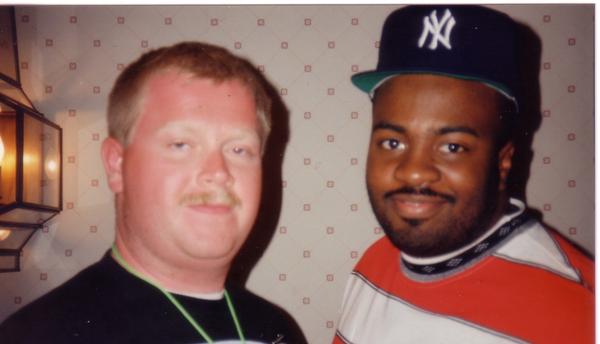
“In 2008 im taking back what is mine” The true story will be told and all fakes will be named” –
Bob The Equalizer
*”If it weren’t for that cancer and that divorce, we wouldn’t be havin’ this conversation,” says DJ Equalizer, one of the pioneers of Baltimore club music, about the personal setbacks that kept him out of the scene in recent years. “A rumor went around that I’d died, OK? And all the sudden 50 other people were poppin’ up, ‘I invented club music, I invented club music.'”
At 40 years old, in better health, and back in Baltimore after a stint on the West Coast in the ’90s, Equalizer was more than happy to set the record straight during a lengthy phone interview back in May. “I created the DJ business, literally, in this city,” he says. “Totally turned it into a business, y’know. I got started back with Bernie [Rabinowitz] from Music Liberated, this was all the way back in like ’85, ’86,” Equalizer recalls of the influential local record store and its owner, who passed away in 2003. “I left Bernie after a couple years, I moved away from him, and I started a chain of stores you may know as Inner City Records. And I ended up shutting down two of Bernie’s stores. And I feel bad about that, because that wasn’t the point.”
Soon after, DJ Equalizer expanded Inner City Records from a store to a label, issuing his first EP under the group name Sounds of Silence. The A-side, “I Got the Rhythm,” is often cited as one of the first Baltimore club records, and just as frequently misattributed to DJ Scottie B. And one of Equalizer’s 1989 white-label releases, featuring a club edit of 2 Live Crew’s “C’mon Babe,” provided the inspiration for one of Baltimore club’s first national hits, when radio personality Frank Ski used the break for “Doo Doo Brown” by 2 Hyped Brothers and a Dog in 1991. Other influential releases in DJ Equalizer’s catalog include the Beats, Breaks, and Bullshit EP series, which is cited by DJ Technics as providing source material for many of club’s most frequently used loops.
DJ Equalizer can even nail down the exact moment that the nascent genre’s name was inadvertently coined by an employee of his label’s distributor, Liason Records. “Tom from Liason, I’m not sure if he’s still there anymore, but he was a part of it, he gave me a call,” Equalizer says. “And he’s like, ‘Bob, look, y’know, I keep getting these calls from overseas, they wanna know they can hear more of that Baltimore club music.’ Right there is when it got the name. From that moment on it was called club music, and there was nothing you could do to change it.”
*borrowed from the city paper story on the legend of Baltimore Club
